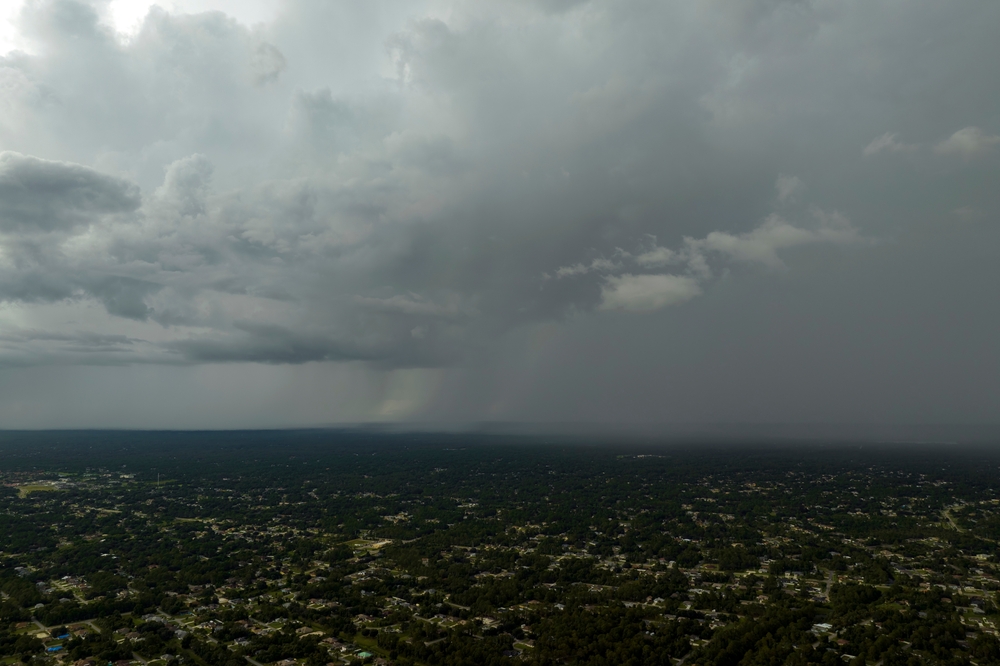When storm clouds roll in, it's not just the outdoor activities that get disrupted — your indoor digital life might face some turbulence too. Many of us have experienced the frustration of slow or spotty internet during a rainstorm. But how (and how much) much does bad weather actually impact your Wi-Fi connection? Let’s explore the reality behind weather-related Wi-Fi woes and the technical aspects of how various weather conditions, from rain and snow to thunderstorms and heat waves, can impact the strength and stability of your wireless internet service.
Can Weather Really Affect Wi-Fi Internet? How Does Weather Disrupt Wi-Fi and Internet?
To understand how weather can impact your internet, we have to understand how Wi-Fi routers work. Your Wi-Fi router is responsible for connecting your devices with each other and with your modem, which is the device that makes it possible for your devices to reach the broader internet. To do this, your router uses radio frequencies. Like AM/FM radio, satellite TV, and other types of wireless radiation (a scary word for a familiar thing), these Wi-Fi signals can be interfered with by other waves, and can have trouble traveling through certain objects and materials.
Among the objects and materials that can mess with radio signals is good old water: moisture in the air, falling rain, sleet, snow, and so on.
This means that pressure systems and humidity can mess with Wi-Fi signals. Rain and snow aren’t as likely to cause issues with Wi-Fi in most homes, but they could be a major factor for some homes. If you have a courtyard or another open space between your device and the router, that outside weather could be why you’re having trouble with your signal!
But if you’re using a wireless internet connection, like a 5G home internet or satellite internet, that outside weather can have an even bigger impact. And, of course, cable and other wired connection types can be disrupted if weather takes out the right telephone poles and cables. While not technically related to your Wi-Fi router, these weather issues can cause serious frustration.
Rain and Thunder
Heavy rain and thunder are a recipe for disaster when it comes to internet connections. Floods can disrupt and break satellite dishes, while thunder can short out power lines and cause outages that disconnect you from your network and electricity. Depending on your internet type, problems can range from spotty internet to rain fade. Wired connections, like cable and fiber, are more resistant than wireless networks, like 5G, since the wires run underground.
If you find yourself disconnecting from the internet while browsing through your phone or computer, check to see if other devices in your household can still access the internet. In some cases, connection issues might be related to a specific device rather than a general internet connectivity issue. If you still have power, try resetting your router to see if that helps your internet connection.
Tornados

In the unlikely event of a tornado, most internet types probably wouldn’t be able to withstand the strong pressure and winds. Wired underground connections may be damaged, power lines can get caught in the winds, and satellite dishes can break. Even an EF1 tornado can cause damage that leaves internet users without connection for days.
Preventative measures beforehand can ensure you stay connected if you have Wi-Fi. Having backup power in your house can help keep your internet afloat from power outages. If possible, disable Wi-Fi from devices that aren’t using the internet to see if that can boost the internet signal for the remaining online devices.
Tornados and other extreme weather events, like hurricanes, are likely to make issues with your Wi-Fi irrelevant by messing up internet connections outside of your home. Remember, your wireless home network is created by your router, but you need a modem and a functioning connection to enjoy the internet.
Blizzards
Shoveling piles of snow from your front yard is easy, but handling the aftermath of a blizzard involves some extra steps. Light snow and cold winds shouldn’t affect internet connection, but a heavy snowstorm is more likely to cause spotty internet since snow can block wireless signals. In more severe cases, satellite internet users will find snow accumulating in their satellite dish, which could negatively affect and even damage the equipment.
Wireless internet users might need to move their devices closer to the router or reset them to fix connection issues, whereas satellite internet users will have to try to remove snow from their satellite dish. If any equipment needs to be fixed or changed, calling a technician is much better than trying to find a DIY solution.
Heat Waves
In contrast to other types of extreme weather, heat waves affect internet connections and equipment. Heat affects signals going to and from your household and can cause equipment like modems and routers to overheat. Although this seems dreary, there are still ways to work around the heat and stay connected to the internet.
Moving your router or modem to a cooler part of your house might help prevent your equipment from overheating and by extension, allow you to reconnect to the internet. The same applies to your devices. Taking a break from your phone or computer could solve some connectivity issues. Once the weather cools off, try to reset your router by removing the power cord and giving it time to cool down further before using it again.



